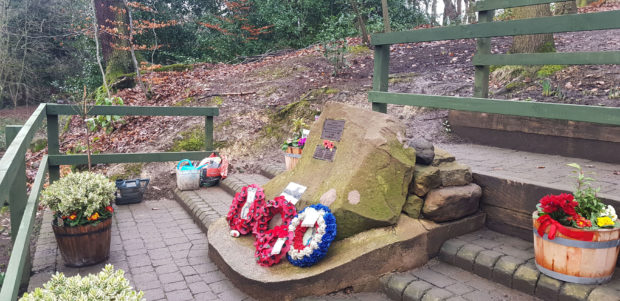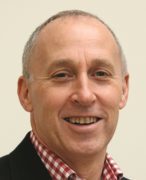This week started with the great story of a very ordinary man from Sheffield who has made the difference for 10 families and a grateful United States of America.
It all began when 10 US airmen died in Endcliffe Park, Sheffield, attempting to land their B-17 on return from a bombing raid; 10 lives among many lost that day in 1944. Tony Foulds was an eight year old playing in the park and saw it crash. He has since diligently maintained a memorial.
His actions demonstrate that their lives mattered. Tony has sought no accolade. Rather, that the sacrifice made by these 10 young men was acknowledged; his sole wish was for a fly past on February 22, the 75th anniversary. Social media has played a massive part in bringing this story to life. Not only will there now be a flypast by the United States Air Force from RAF Lakenheath, but Tony has met with and been personally thanked by the US Ambassador.
Social media has played a very important role in enabling a great outcome of which we can all be proud. But the story started with one man, with a heart full of compassion, and a determination to make a difference. Lives mattered.
The darker side of social media is also in the press this week and highlighting the more sinister and unregulated nature of the medium. A 14-year-old girl tragically took her life and the belief of the parents is that social media killed their daughter.
This isn’t the first time the accusation has been levelled at the multi-billion-dollar industry that generates its gluttonous wealth through access and advertising.
Social media has accelerated in influence through the rapid evolution of both the internet as a ‘connector’, and the mobile device as the human-machine interface. There has been an insatiable appetite for people to become connected and to surrender their lives onto the ‘net’ and directly connected with that has been an acquiescence to allow others to judge with immunity.
Social media has created a binary world of good-bad, like-dislike etc that is banal and all too often overly simplistic, allowing anonymous criticism of individuals and pandering to the herd mentality inherent in all. The introduction of the ‘like’ is possibly the most consequential outcome on the internet today. It allows an individual to be bullied and chastised by people who do not even know the person; the ‘followers’ all mirror their ‘thought leader’. There are no controls; there is no moderating of criticism; there is only an ambition to be ‘the most liked’ – and oblivious to who gets hurt, offended or humiliated on the journey.
Ministers are starting to wake up to the tragedy of social media but one has to ask if it is too late for a whole number of generations? Once again technology has been introduced without the care and attention needed to ensure that we control it – not the other way around. Science has proved that the way in which our brain connects through social, emotional and intellectual stimulation hasn’t changed. But the way our minds are ‘programmed’ has; parental style that just surrenders to their children surfing and ‘using technology’ without context, emotion and guidance is merely compounding the situation.
Indeed, the combination is toxic and we are now seeing a disproportionate rise in mental health issues surrounding our future generations that are unique to the ‘modern and accessed world’.
I was inspired to hear the story of two men in a taxi; one the taxi driver, the other a visitor to the city of Dresden. The taxi driver asked the passenger why he was visiting the city. “To be part of the commemoration of those that died during the war – my father was a bomber pilot in the Royal Air Force,” came the reply. The driver responded: “my mother was killed in the Dresden raids”.
Almost immediately he pulled over and the driver turned off the engine. The passenger thought that there was to be an altercation; but the taxi driver turned around and offered his hand to shake. The passenger took his hand and as they shook in a bond of unsolicited friendship the taxi driver calmly said: “we must learn from the past and be loyal to the future”.
In that act and commitment, two people made a difference through compassion, understanding, recognition of truth and a burning hope to make the future a better place. That lives mattered.
The internet, IT and social media are not in themselves ills; rather it is how we exploit them and, perhaps more appropriately, how we let them exploit us. The nature of social media today, unregulated and profit-obese is no different to other societal profiteers of the past; indeed, today’s social media and the mental ill-health of a burgeoning generation is a mirror of the tobacco barons and lung cancer in the mid-to-late 20th century.
We need to stop talking about the issue and take back control, both as individuals, collectives, society and governments. Lives matter and one person can make a difference – because we all need to take that first step.
James Johnston is a business owner, chair of the The Malt Whisky Trail and served as Station Commander for RAF Kinloss

